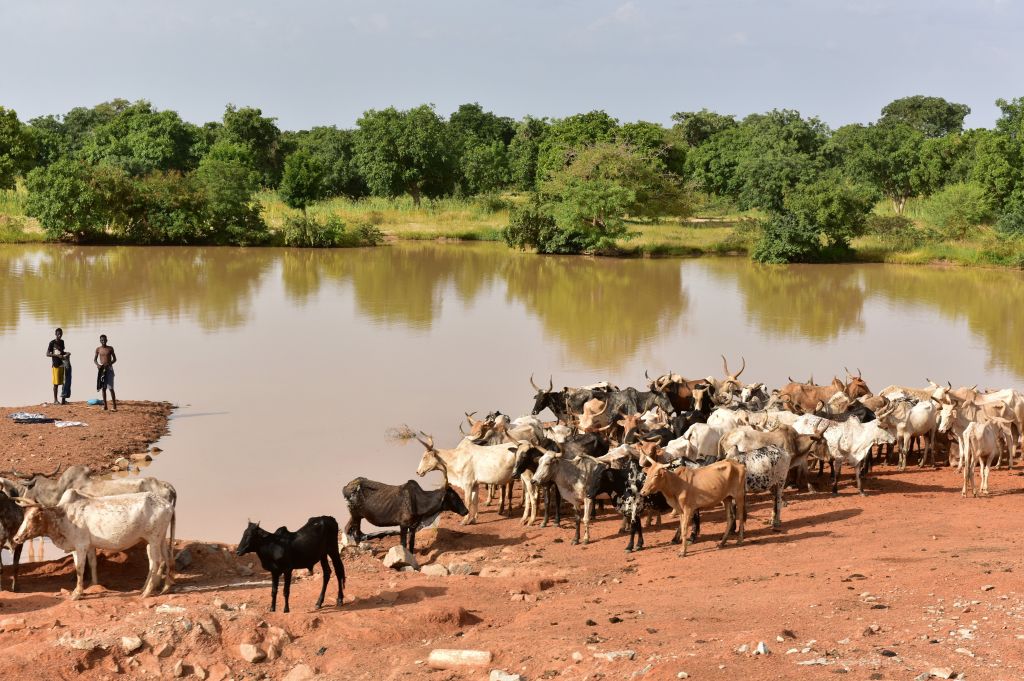Across the northern reaches of Côte d’Ivoire, Ghana and Togo, there is relative peace compared to the dire situation in neighboring Burkina Faso, where terrorist groups have taken control of much of the country.
Unlike its neighbors, Ghana has not suffered a terrorist attack. But just south of its border with Burkina Faso, thriving illicit trade markets help support the insurgent groups financially and provide opportunities to recruit fighters.
Affiliated with al-Qaida, Jama’at Nusrat al-Islam wal-Muslimin (JNIM) is the most active terror group in the area and casts a wide net in recruiting men and boys to fight in Burkina Faso.
“Some are fighting for jihad, some are doing it for business,” said one of three Ghanaian men the BBC recently spoke to on condition of anonymity.
The business all three men engage in is smuggling livestock from Burkina Faso and trading at cattle markets in northern Ghana. It is one of many sources of funding for terrorism in the Sahel.
During a mapping exercise of illicit economies in West Africa, the Global Initiative Against Transnational Organized Crime identified cattle rustling as an “accelerant market” linked to and influenced by instability.
“Cattle rustling is a growing phenomenon that goes hand in hand with the expansion of violent extremist groups, in particular the al-Qaida affiliated JNIM,” the initiative stated in 2024.
The three BBC sources said they had crossed the porous 550-kilometer border between the two countries and fought in Burkina Faso multiple times since 2018. One was motivated by extremist ideology, another by the need to defend familial communities.
“My elder brother, his wife and children were all killed by the [Burkinabe] army,” one of the men said. “It pains me a lot. The military came to their community in the forest. They killed all of them, a whole household, including 29 people.”
In 2022, terrorist groups in the Sahel recruited between 200 and 300 Ghanaians, according to research from French nongovernmental organization Promediation, which specializes in conflict mitigation and prevention.
A July 2024 report by Dutch international relations think tank Clingendael indicated that JNIM has tried to use societal divisions, stigmatization and discrimination to recruit and incite Ghanaian Fulani, a seminomadic West African ethnic group deeply tied to livestock herding.
“For JNIM, Ghana currently functions as a supply line where militants obtain food, non-perishable supplies (e.g. dynamite, fuel, cattle, motorcycles), recruits, and find a place to rest and hide out,” the report stated. “Hence, the absence of real attacks on Ghanaian soil seems to result from JNIM’s calculus of not disturbing supply lines and places of rest as well as not provoking a relatively strong army.”
Clingendael said JNIM has had “minimal success” recruiting in Ghana. But the BBC sources disagreed, saying that people from “all parts of Ghana” and from many ethnic groups were joining the fight in Burkina Faso. One described how attacks in Burkina Faso help supply the cattle markets in northern Ghana, saying, “When we attack a community, we take their animals: sometimes 50, sometimes 100.”
The men said it is possible the insurgency will continue to expand into the coastal states of Côte d’Ivoire, Ghana and Togo.
“This thing can go to any place, or to any country,” one said. “It didn’t exist in Togo but now the attacks are happening there. If they can go to Togo, they can get to the most peaceful country, Ghana. This thing is dangerous and it’s powerful.”

